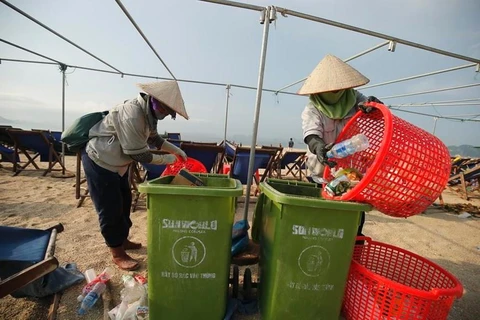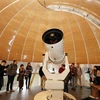Hanoi (VNA) – “Promoting the role of science and technology organization in the management and reduction of plastic waste" was the topic of a scientific conference that took place in Hanoi last week.
The event was co-held by the Vietnam Union of Science and Technology Associations (VUSTA) and the German Development Cooperation Organisation (GIZ) on October 11.
The conference aimed to create a forum for scientists and policy makers to exchange and share information about national plans and programmes on plastic waste management and reduction, while discussing the challenges in creating data sources to manage plastic waste in Vietnam.
From there, the delegates proposed recommendations on scientific methods to create data sources for the management of plastic waste, as well as policies, mechanisms and financial resources to mobilise the participation of scientists in the field.
In his opening remarks, VUSTA Vice President Nghiem Vu Khai said plastic waste is currently a threat to the environment, seriously affecting ecosystems, water quality and people's livelihoods.
The Ministry of Environment and Natural Resources is urgently drawing up the National Action Plan for Ocean Waste Management with a vision to 2030, he said.
According to the draft plan, by 2030, all coastal tourism and service areas will stop using disposable plastic products, the country will reduce 75 percent of its ocean plastic waste, and all marine protected areas will no longer have plastic waste.
Vietnam will expand its monitoring system and periodically evaluate the state of plastic waste in the estuaries of its six major river basins.
The delegates also listened to presentations about plastic waste pollution in the Saigon River, the current status of plastic disposal in Vietnam and the role of science and technology in the war against plastic waste, and an assessment of current plastic waste pollution in Vietnam’s coastal tourist areas.
Three group discussions were also organised, focusing on challenges in developing data resources, proper methods and approaches to creating data resources; and policies to facilitate scientists’ activities to develop data sources./.























